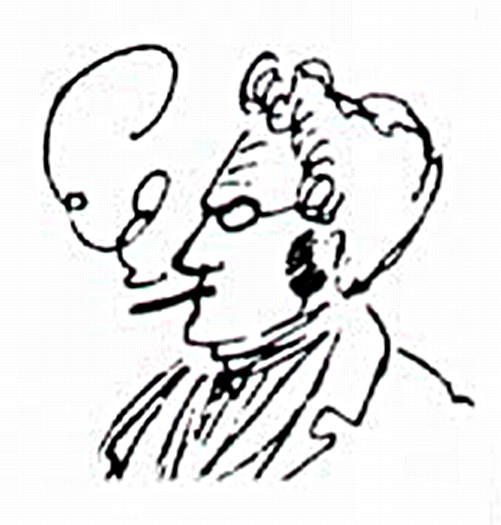Max Stirner frasi celebri
L'unico e la sua proprietà, Citazioni dal testo
La mia causa non è divina né umana, non è la verità, non è la bontà, né la giustizia, né la libertà, ma unicamente ciò che è mio: e non è una causa universale, bensì unica, come unico sono io. Nessuna cosa mi sta a cuore più di me stesso.
L'unico e la sua proprietà, Citazioni dal testo
frase conclusiva dell'opera "L'unico e la sua proprietà")
L'unico e la sua proprietà, Explicit
Frasi sull'et di Max Stirner
L'unico e la sua proprietà, Citazioni dal testo
L'unico e la sua proprietà
L'unico e la sua proprietà, Citazioni dal testo
L'unico e la sua proprietà
L'unico e la sua proprietà, Citazioni dal testo
L'unico e la sua proprietà
L'unico e la sua proprietà, Citazioni dal testo
L'unico e la sua proprietà
L'unico e la sua proprietà, Citazioni dal testo
Max Stirner Frasi e Citazioni
“Il rude pugno della morale non ha alcun rispetto della nobile essenza dell'egoismo.”
L'unico e la sua proprietà, Citazioni dal testo
L'unico e la sua proprietà, Citazioni dal testo
L'unico e la sua proprietà, Citazioni dal testo
L'unico e la sua proprietà, Citazioni dal testo
“Nelle mani dello Stato la forza si chiama diritto, nelle mani dell'individuo si chiama delitto.”
L'unico e la sua proprietà, Citazioni dal testo
L'unico e la sua proprietà, Citazioni dal testo
L'unico e la sua proprietà, Citazioni dal testo
E così ci si butta disperatamente ad acchiappar spiriti, come se in questo modo si potesse prendere se stessi e, andando a caccia di sé, si perde di vista se stessi, quali siamo realmente.
L'unico e la sua proprietà, Citazioni dal testo
L'unico e la sua proprietà
L'unico e la sua proprietà, Citazioni dal testo
Max Stirner: Frasi in inglese
“Everything sacred is a tie, a fetter.”
Cambridge 1995, p. 192
The Ego and Its Own (1845)
Origine: The False Principle of our Education (1842), p. 12
Origine: The False Principle of our Education (1842), p. 11
“The men of the future will yet fight their way to many a liberty that we do not even miss.”
Cambridge 1995, p. 114
The Ego and Its Own (1845)
Origine: The False Principle of our Education (1842), p. 19
Stirner's Critics (1845)
Origine: The False Principle of our Education (1842), p. 21
Origine: The False Principle of our Education (1842), p. 25
“I am owner of my might, and I am so when I now myself as unique.”
In the unique one the owner himself returns into his creative nothing, of which he is born. Every higher essence above me, be it God, be it man, weakens the feeling of my uniqueness, and pales only before the sun of this consciousness. If I concern myself for myself, the unique one, then my concern rests on its transitory, mortal creator, who consumes himself, and I may say: All things are nothing to me.
Dover 2005, p. 366
The Ego and Its Own (1845)
Only a formal and material training is being aimed at and only scholars come out of the menageries of the humanists, only "useful citizens" out of those of the realists, both of whom are indeed nothing but subservient people. Our good background of recalcitrancy [sic] gets strongly suppressed and with it the development of knowledge to free will. The result of school is then philistinism.
Origine: The False Principle of our Education (1842), p. 23
Truth consists in nothing other than man's revelation of himself, and thereto belongs the discovery of himself, the liberation from all that is alien, the uttermost abstraction or release from all authority, the re-won naturalness. Such thoroughly true men are not supplied by school; if they are there, they are there in spite of school.
Origine: The False Principle of our Education (1842), p. 21
Attributed in Forbes Vol 38 Iss. 2 (1936) p. 18, and in Lifetime Speaker's Encyclopedia (1962) by Jacob Morton Braude, p. 275
